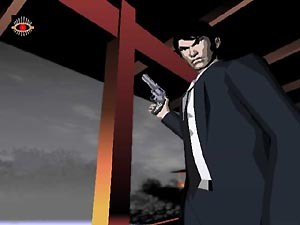July 19, 2005

Killer 7 has finally come out, the last of the four (surviving) new games that Capcom pledged for the GameCube a couple of years ago.
Theyre all amazing games, polished, deep and imaginative, and three of them – Resident Evil 4, P.N. 03 and Killer 7 (the fourth was Viewtiful Joe) – form a kind of triumvirate that explore the concept of the modern shooter.

P.N. 03 was the first to come out. Almost terminally misunderstood, it is about position, timing and rhythm. People think that the controls are sluggish and frustrating, but they’re not. Match the rhythm of the game and you’ll find yourself avoiding enemy fire and sweeping out to dole out your own with elegance and calculated flair. You’re given a precise range of moves – you have to work out the best strategy to efficiently deal with each of the enemy types and win those points.
